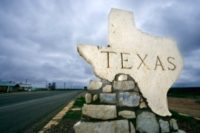CSB uses Facebook for emerging info on fertilizer plant explosion
Lively opinions, useful suggestions

 The U.S. Chemical Safety Board (CSB) has established a Facebook page devoted to the April 17 West, Texas fertilizer plant explosion – and although a large photo of the memorial for the victims is prominent on the page, the ongoing FB conversation is mostly forward-looking.
The U.S. Chemical Safety Board (CSB) has established a Facebook page devoted to the April 17 West, Texas fertilizer plant explosion – and although a large photo of the memorial for the victims is prominent on the page, the ongoing FB conversation is mostly forward-looking.
In what is a sign of the times, the CSB is using the social media outlet to both gather and disseminate information and opinions about the devastating incident, which killed 14 people, injured hundreds more and destroyed dozens of buildings.
Praise and scorn
Articles and reports from a variety of media sources are posted on the page, often inspiring spirited responses.
A three-minute CSB video showing the extensive damage the blast caused in the community was met with both praise:
Very impressive video and thanks for sharing it with the public. I am sure CSB will make a very thorough investigation as they usually do and provide the corresponding causes and lessons learned recommendations to prevent this from happening again.
-and criticism:
We Texans have seen all of this devastation for weeks now. We do not need the "Obama" administration sending in video crews to film anything in Texas. There is a reason Texas has the #1 economy in the nation. It's called doing things the Texas way. of course "'bama" will turn one sad tragic accident into a "Everyone needs to avoid doing business in Texas" political game. Texas is a very conservative state and his highness in the whitehouse will use any tactic to hurt or hinder the way Texas does business.
Helpful resources
Many posts focus on ways of preventing similar tragedies in the future. Visitors to the page can find information about a regulatory compliance assessment tool from the Agricultural Retailers Association (ARA) and The Fertilizer Institute (TFI), along with a message:
"The fertilizer industry continues to extend its thoughts and prayers to the people of West, Texas, who are grieving for those in their town who were lost or injured. We are watching closely as investigators determine what happened and upon a final determination of cause by the Chemical Safety Board we will work together to identify and apply any lessons learned. While that investigation continues, we are reaffirming our commitment to safe operations of fertilizer facilities by alerting the industry to the availability of an important tool to support compliance with existing federal regulations and associated best management practices."
One poster had this suggestion:
What about also having the Compliance Assessment tool available to the community on the other side of the fence-line? This will assist Local Emergency Planning Committees (LEPC) in their hazard analysis/risk assessment gap analysis in the development of community mitigation strategies in accordance with NIMS compliant Emergency Operations Plans (EOP).
Another gave a review of the assessment tool:
The utility allows (you) to run different scenarios with varying quantities and different hazardous substances. Quite impressive in the 22 page report generated afterwards.
There are human interest stories, like one from CNN: 2-year-old West, Texas victim’s long road to recovery, detailing the extraordinary story of a toddler who survived the blast and was found in the ruins of apartment block across the street from the site.
The risk management conversation
A link to a Houston Chronicle story about the number of Texas residents living and working near fertilizer plants drew this response:
Another piece written without true understanding of what risk management is. Of course you cannot have zero risk, but if you cannot remove the risk than you try and reduce the consequences. Buffer zones are ideal, if you can't do that then build blast walls, ensure the roofs on these buildings are weaker than the walls so that if it blows up the force is direct up not sideways. There's so much that can be done without moving the plant or removing the chemicals. This is not about odds, leave it to chance and it will go wrong. Manage the risk & the consequences.
If small government becomes no government, why have a governor?
Other posters had this reaction to a NY Times article: After Plant Explosion, Texas Remains Wary of Regulation
Common sense tells you it shouldn't be built that close to town!!, said one.
And another:
Only a fool does not learn from the mistakes of the past. If Rick Perry does not think that regular inspections of factories storing & handling Ammonium Nitrate are necessary I fear for the man's sanity. It makes Texas look a laughing stock to the rest of the world... do Texans want to be treated like the victims of Union Carbide in Bhopal India? There is a point where small government becomes, in essence, no government in which case why have a governor at all?
Click here to join the conversation and stay updated on investigative and regulatory developments stemming from the tragedy.
Looking for a reprint of this article?
From high-res PDFs to custom plaques, order your copy today!






